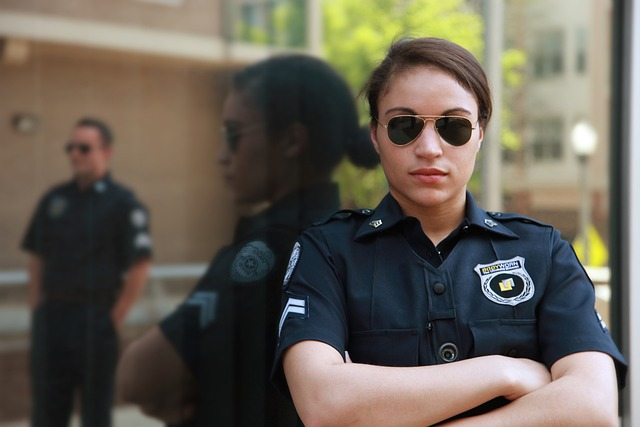Organizing an important event requires meticulous planning and execution to ensure its success. One critical aspect that event organizers must prioritize is security. Whether it’s a conference, trade show, concert, or any other large-scale gathering, ensuring attendees, staff, and venue safety and security is paramount. This article will discuss top tips for securing an important event and creating a safe environment for everyone involved.
Conduct a Risk Assessment
Before the event, conduct a thorough risk assessment to identify potential security vulnerabilities and hazards. You must evaluate factors such as the venue layout, crowd size, type of event, and any specific security concerns related to the location or attendees. From there, engage with reliable event security professionals or consultants who specialize in event security to assist you in this process. Understanding the potential risks allows you to develop a comprehensive security plan tailored to your event’s unique requirements. You will also be able to identify areas that may require additional security presence or reinforcements.
Develop a Comprehensive Security Plan
Develop a comprehensive security plan addressing various event security aspects based on the risk assessment. This plan should include crowd management, access control, emergency response, and contingency planning measures. Consider collaborating with local law enforcement, private security firms, and relevant authorities to ensure compliance with regulations and leverage their expertise. Communicate the security plan to all stakeholders, including staff, vendors, and attendees, to create awareness and foster a sense of security.
● Communicate Security Measures to Attendees
Transparency is vital when it comes to event security. Communicate the security measures in place to attendees before and during the event. Provide information on bag restrictions, prohibited items, and any additional security protocols they must know. Use various communication channels, such as event websites, social media platforms, and email newsletters, to disseminate this information effectively. Encourage attendees to report suspicious activities or concerns to event staff or security personnel. By fostering open communication, attendees will feel more confident and reassured about their safety at the event.
Implement Access Control Measures
Controlling access to the event venue is crucial for maintaining security. Implement access control measures such as ticketing systems, identification checks, and wristbands or badges. Use technology solutions like barcode scanners or RFID tags to streamline entry and prevent unauthorized access. Consider using other pertinent technologies and tools to secure your events more effectively, such as facial recognition and biometrics, to limit access to restricted zones and ensure the safety of all attendees. Assign trained personnel to monitor access points and conduct thorough bag checks to detect prohibited items. You can prevent potential security breaches and maintain a secure environment by effectively managing access control.
Deploy Trained Security Personnel
Hiring trained security personnel is essential to ensure the safety and security of the event. Work with reputable security companies or agencies that specialize in event security. Ensure security personnel have relevant experience and training in crowd management, emergency response, and conflict resolution. They should also be well-versed in the specific security protocols established for your event. Assign security personnel strategically throughout the venue, including entrances, exits, crowd areas, and high-risk locations, to maintain a visible presence and deter potential security threats.
● Train Event Staff in Security Protocols
Event staff, including ushers, volunteers, and support personnel, are crucial in maintaining event security. Provide comprehensive training on security protocols, emergency response procedures, and customer service skills. Train staff members to identify potential security risks, handle crowd-related situations, and respond appropriately to emergencies. Encourage them to remain vigilant and observant throughout the event, reporting any security concerns to the designated security team. The well-trained and knowledgeable staff can contribute significantly to the overall security of the event.
Utilize Video Surveillance and Monitoring
Video surveillance systems play a vital role in event security. Install high-quality CCTV cameras in crucial venue areas, such as entrances, exits, hallways, and parking lots. Optimize camera placement to capture critical angles and minimize blind spots. Additionally, consider employing video analytics technology to detect suspicious behavior or unauthorized access. Ensure that the surveillance system is monitored in real time by trained personnel who can respond promptly to any security incidents or concerns.
Implement Emergency Response Procedures
Prepare and communicate clear emergency response procedures to all staff and security personnel. Establish evacuation routes, assembly points, and communication channels in an emergency. Conduct regular drills and simulations to familiarize staff with the procedures and ensure a swift and organized response in case of an incident. Collaborate with local emergency services, such as fire departments and medical facilities, to coordinate emergency response efforts and integrate their expertise into your security plan.
Enhance Cybersecurity Measures
In today’s digital age, cybersecurity is critical to event security. Protect sensitive information and prevent cyber threats by implementing robust cybersecurity measures. Secure event registration systems, ticketing platforms, and other online portals that collect attendee data. Train staff on cybersecurity best practices, such as strong password management and recognizing phishing attempts. Encrypt sensitive data, use secure payment gateways, and regularly update software and systems to mitigate the risk of potential data breaches or cyberattacks. Consider partnering with cybersecurity experts who can assess your systems’ vulnerabilities and recommend improving your event’s cybersecurity posture.
Regularly Evaluate and Update Security Measures
Event security is an ongoing process that requires continuous evaluation and improvement. Conduct post-event debriefings to assess the effectiveness of security measures and identify areas for enhancement. Gather feedback from staff, attendees, and security personnel to gain insights into any security incidents or concerns that may have arisen. Incorporate these lessons learned into future security plans and update security protocols accordingly. Stay updated with the latest security technologies and trends, adapting your security measures to mitigate emerging threats.

Securing an important event requires a proactive and multifaceted approach. By conducting a thorough risk assessment, developing a comprehensive security plan, implementing access control measures, deploying trained security personnel, utilizing video surveillance and monitoring, implementing emergency response procedures, enhancing cybersecurity measures, communicating security measures to attendees, training event staff in security protocols, and regularly evaluating and updating security measures, you can create a safe and secure environment for your event. Remember, prioritizing event security not only ensures the safety of attendees and staff but also safeguards the reputation and success of your event.













